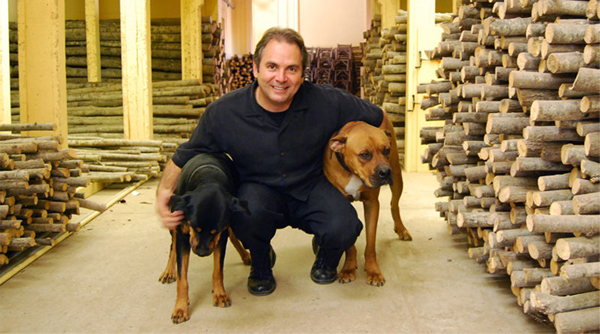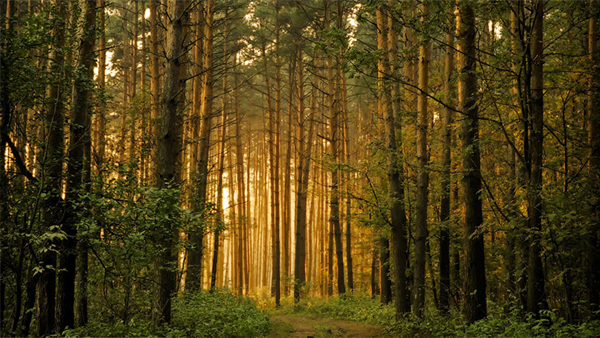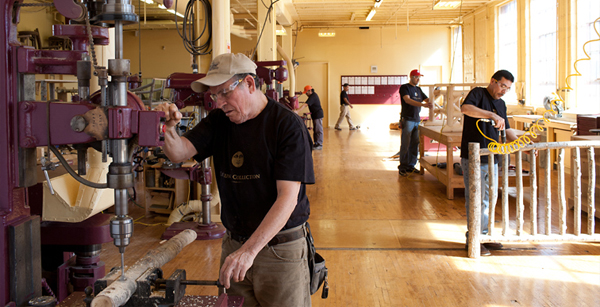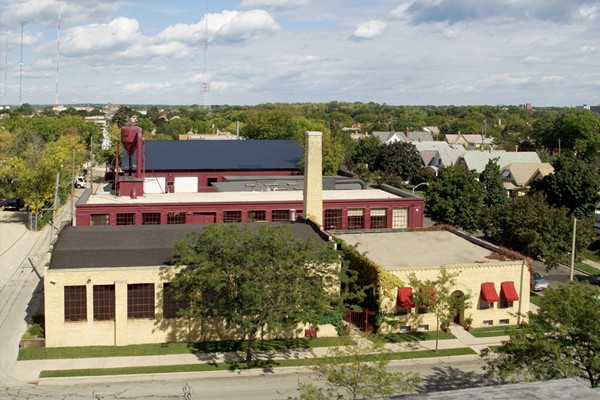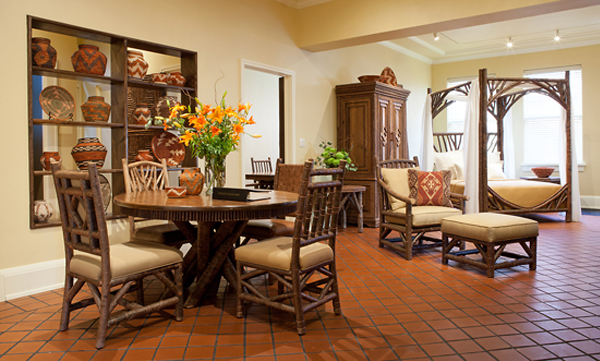In recent years, the terms “going green” and “eco-friendly” have become buzz words in the media and in product packaging. The term “eco-friendly” has been used so frequently, and for so many different products and practices, that its meaning risks being diluted.
Eco-friendly means earth-friendly or not harmful to the environment – according to Merriam-Webster, “not environmentally harmful” – and the first known use of the term can be tracked to 1989.
However, La Lune Collection’s attention to this ideal precedes the term’s first appearance by about a decade. Since La Lune Collection’s inception in 1979, before eco-friendly became fashionable, we have been concerned about the environment – particularly about deforestation by the lumber and furniture industries. Many of our customers are surprised to learn that La Lune Collection is one of the most eco-friendly furniture companies in the world.
It’s true! And here are the top 10 reasons why:
1. La Lune harvests only fast growing and invasive wood species such as poplar and willow for the production of all its products. La Lune harvesting is actually beneficial to the restoration of bio-diversity to forests which have been previously clear cut by the lumber industry.
2. All harvesting is done by hand by La Lune employees in order to maintain complete control and supervision of the harvesting process. All methods of harvesting are low-tech and eco-friendly using only hand tools. No heavy logging equipment is used.
3. All woods are harvested near the factory in Wisconsin, thereby reducing the negative impact and inefficiency of transportation and eliminating any impact on the rainforests of the world where much lumber is harvested by the furniture industry.
4. La Lune’s unique yet low-tech and low-processing manufacturing methods are eco-friendly and efficient. Most processes are done entirely by hand using environmentally sound and efficient manufacturing methods. These methods, although sometimes slower, use little energy and generate virtually no waste or pollution, just like a simple low-tech bicycle is slower but much more energy efficient and eco-friendly than any high-tech automobile.
5. The turn of the century La Lune factory buildings and machinery have been carefully re-cycled and re-stored incorporating high efficient use of energy. The La Lune factory and most of its machines and equipment date back to the early 1900’s. Wood and other waste products are used to fire the kiln and heat the factory building. Even wood shaving waste is used by local farmers for animal bedding.
6. La Lune carries no inventory of furniture and manufactures “just in time” as items are sold. This efficient “just in time” manufacturing process reduces the expense and the inefficiencies associated with the production and storage of finished inventory. La Lune markets and sells its products only in the US and Canada in order to reduce the shipping distance to its clients.
7. All La Lune finishes are non-polluting, non-toxic, non-flammable, water-based finishes which are locally manufactured exclusively for La Lune. Finishes are applied in dip tanks in order to eliminate the airborne pollution, energy costs, and waste products which are generated with typical spray booth applications.
8. La Lune furniture is designed and constructed to last for generations, will become tomorrow’s valuable antiques, and thereby will reduce negative environmental impact and landfill waste associated with cheaply made, disposable, non-degradable furniture. However, La Lune furniture is 100% bio-degradable, if it should someday be discarded.
9. La Lune’s human sustainability is an important part of its environmental sustainability; in 1986, La Lune relocated its operations to an abandoned factory building in a central city neighborhood now called Riverwest. La Lune has helped to restore the neighborhood by rehabbing the building, providing jobs, and opening a youth center for at-risk children near the factory in 1989.
10. La Lune’s furniture, factory, and company history provide a perfect educational tool to teach others about eco-friendly manufacturing. School and civic groups of all ages regularly tour the La Lune factory in order to learn the La Lune philosophy and process from its founder Mario Costantini. La Lune is also actively supportive of local environmental initiatives, including the Urban Ecology Center, located on the Milwaukee River a few blocks from the La Lune factory.

